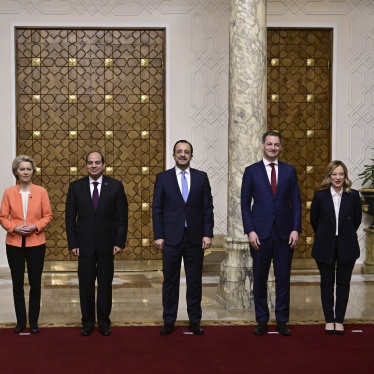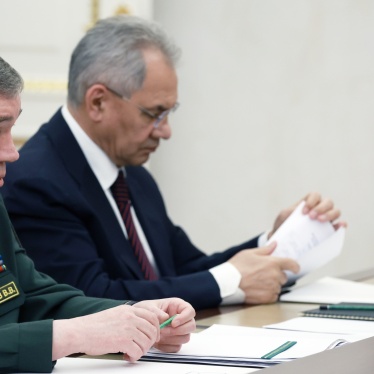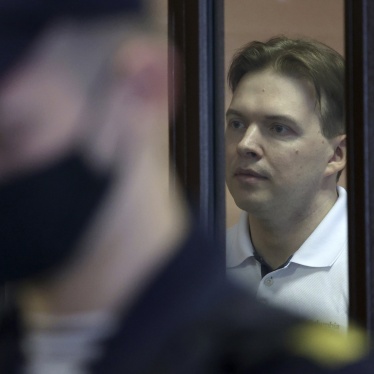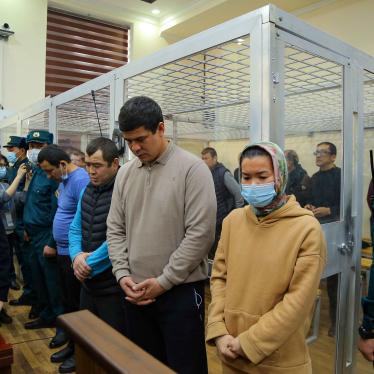It sometimes seemed as if he rued the day that he had ever uttered the phrase. After all, it gave his opponents more than enough rope to hang him with. But Robin Cook’s much-trumpeted “foreign policy with an ethical dimension” was more than just a rhetorical idea. It signified a mindset change of potentially historic significance. With luck, the changes will long outlast his death.
In the days since his sudden collapse while walking in the Scottish hills last weekend, much has been written about the former Foreign Secretary’s brilliant oratory, about his powerful lambasting of the Conservative government over the arms-to-Iraq affair and his high-profile opposition to his own Government’s war on Iraq.
Equally important in historical terms was a key legacy that he left behind. The aspiration towards an “ethical foreign policy” – a condensed description that Cook himself loathed (the “with-an-ethical-dimension” phrase allowed more latitude) – was as admirable as it was mocked. It needs to be understood in the context of the policy that came before, summed up by the famously cynical US presidential bon mot: “He may be a sonofabitch but at least he’s our sonofabitch.” In Britain, Labour and Conservative governments alike had turned a blind eye to the worst crimes of Saddam Hussein when he was committing genocide, because the Iraqi dictator was “useful” as a bulwark against the mullahs in Iran. Those who were eager to do business with tyrants liked to argue that they were “pragmatists”. Again and again, history has shown that this pragmatism was hollow at best. The pragmatism was not just morally bankrupt, it was also politically shortsighted.
One obvious example was the Serb leader, Slobodan Milosevic, who now stands in the dock of the war crimes tribunal at the Hague. If one travelled through the Balkans – in Croatia, Bosnia, Kosovo and Serbia itself – the destabilising menace of Milosevic was clear to see from the start. And yet, the British Government was reluctant to confront the reality. When I put it to Milosevic in 1992 that he might one day find himself arraigned before a (then non-existent) war crimes tribunal, he looked baffled. He insisted, as he always did: “I want peace.” Bizarrely, the Western politicians and diplomats who trooped in and out of his office seemed ready to believe him. Milosevic, after all, was “useful”.
Ministers did not see themselves as unethical. Sometimes, they did not even seem to understand the depths of their own cynicism. There was, however, a widespread failure to understand the importance of moral backbone. It was assumed that business deals and geopolitics mattered; human rights did not. When the Overseas Development minister Lynda Chalker had the temerity to mention human rights abuses during an official visit abroad to a friendly country, the Foreign Office promptly slapped her down. It was simply not done.
The arrival of Robin Cook changed all that. As a journalist with The Independent, I accompanied Mr Cook on his first foreign trip after becoming Foreign Secretary in 1997 – a trip to South-East Asia, including Indonesia. The corrupt and brutal President Suharto was still in power, and there were contradictions aplenty. Britain had recently sold Hawk trainers to the Indonesian military; there were fears that British planes would be used against rebels in the annexed territory of East Timor. The phrase “human rights” was, however, prominently on the agenda for the first time. Sitting with Mr Cook on the ministerial VC10, I asked the obvious question about the limits of the new policy: would the UK now confront powerful human rights abusers, or would it just criticise the smaller and weaker countries, which would find it less easy to hit back? He bristled at the question, implying that even addressing the dilemma was unjustified.
Partly, that prickliness was because he felt himself constantly under attack, from critics who believed that an ethical foreign policy was an absurd construct from the start. He therefore expected “loyalty” from those who, he believed, should be more instinctively sympathetic to his ideas. Partly, too, he suffered from a rash of inflated expectations – a common problem, in those early days of New Labour – as though commentators believed that the ethical dimension to foreign policy might solve all the world’s ills overnight.
An ethical foreign policy, or even a foreign policy with an ethical dimension, is difficult to achieve. It is already an achievement, however, to strive for such a policy. Thus, for example, in an about-turn on Balkan policy, Robin Cook played a key role in ensuring that the international force in Bosnia no longer felt able to turn a blind eye to indicted war criminals freely roaming the streets there; a string of arrests took place in 1997. He fought for the creation of an International Criminal Court, whose founding treaty was agreed in Rome in 1998, the court is now coming of age, with planned prosecutions of crimes against humanity in Darfur. Robin Cook created an annual Foreign Office human rights report, which, for all its flaws, acts as an important yardstick in recording abuses and the UK response to those abuses worldwide.
The real measure of the success of a policy is whether or not it lives on beyond its creator. On that, the jury is still out. There have been plenty of examples during my three years at Human Rights Watch where the British Government has refused to criticise appalling abuses worldwide, especially where its closest ally, the world’s single superpower, has been directly or indirectly implicated. The Government, which has in the past played a key role in ensuring the implementation of the Convention against Torture, has repeatedly sent out a dangerous message, including proposals to send people back to countries where they might be tortured, in flagrant breach of international law. Chris Mullin, until recently a Foreign Office minister, has highlighted the danger of the “rendition” of terror suspects – “the franchising out of torture”, as Mullin rightly describes this self-defeating and abhorrent practice. Mullin draws attention to the British failure to confront Washington on this issue.
Most agree, however, that the goalposts have partly moved, and are unlikely to be moved back to where they were, when human rights were an optional extra, to be treated with polite contempt. Officials and ministers claim that human rights concerns have now been “mainstreamed”. It is possible that future governments will again talk patronisingly – as ministers used to do – of the need to “live in the real world”. But that alleged “real world” was often only real if seen through political blinkers. If that point is now more widely understood, that is at least partly Robin Cook’s doing.
Foreign policy with an ethical dimension can and should be real. The British Government has a chance to prove it. In the next few weeks, the European Union, under the presidency of the United Kingdom, must decide what, if anything, it will do about the fact that Uzbekistan massacred hundreds of its citizens in cold blood, in a Tiananmen-style massacre in May. So far, the punishment for President Karimov’s regime has only been the lightest of taps on the wrist. If Robin Cook’s “ethical dimension” is still to be seen as meaningful, now is the time to prove it.







